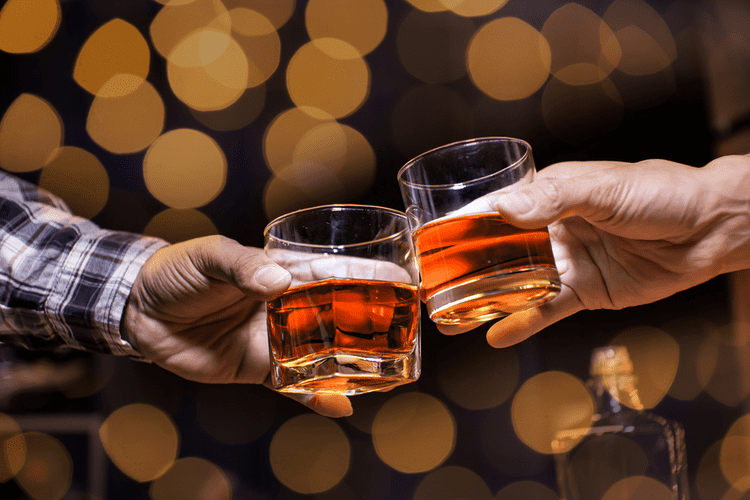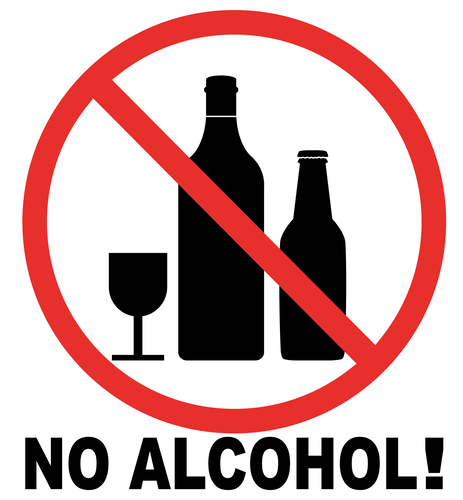Content
An inability to remember the entire event is common when a person drinks 5 or more drinks in a single sitting (“binge”). Because alcohol can affect the memory, a person who drinks heavily is more likely to display risk behaviors. Someone who suffers blackouts or even short-term memory loss because of alcohol is also at risk of contracting sexually transmitted diseases, as well as getting into fights or aggressive confrontations. To evaluate the effects of alcohol, or any other drug, on memory, one must first identify a model of memory formation and storage to use as a reference. This model often is referred to as the modal model of memory, as it captures key elements of several other major models.
She is also a member of board of directors of Hello Sunday Morning. In experiments on rodents my colleagues and I tested how much alcohol is needed for this to happen.

Drinking problems can sneak up on you, so it’s important to be aware of the warning signs of alcohol abuse and alcoholism and take steps to cut back if Transitional living you recognize them. Understanding the problem is the first step to overcoming it and either cutting back to healthy levels or quitting altogether.
The theta rhythm is thought to act as a gatekeeper, increasing or decreasing the likelihood that information entering the hippocampus from cortical structures will be processed (Orr et al. 2001). The second barrier to understanding the mechanisms underlying alcohol’s effects on memory was an incomplete understanding of how alcohol affects brain function at a cellular level. Until recently, alcohol was assumed to affect the brain in a general way, simply shutting down the activity of all cells with which it came in contact. The pervasiveness of this assumption is reflected in numerous writings during the early 20th century.
Why Do You Blackout When Drinking
Abusing these drugs without alcohol can cause memory loss, but alcohol enhances the effects of the drugs. Research also indicates that smoking marijuanawhile drinking increases the likelihood of blacking out.
- Indeed, elements of this model still can be seen in virtually all models of memory formation.
- When you’re passed out from alcohol, you will be unconscious and won’t respond to stimuli including people nudging you or speaking to you.
- With the aid of neuroimaging techniques, researchers may be able to examine the impact of alcohol on brain activity related to these factors, and then determine how alcohol contributes to memory impairments.
- It also decreases sexual performance by depressing nerve centers in the hypothalamus.
Many refuse help because they don’t want the societal shame or they don’t fit that stereotype—they are a “normal” person and can still function despite their drinking habits. This level of intoxication can be related to alcohol poisoning. At this rate, you will experience severe impairment of your sensory functions as well fear of alcohol as your mental and physical capabilities. There are two types of alcohol-induced blackouts that a person can experience. These are called complete blackouts and fragmentary or partial blackouts. With a complete blackout, memory loss is total, and memories of events cannot be retrieved with any manner of prompting.
By now, you should have a good grasp on whether or not you have an alcohol problem. Since alcoholism is a chronic disease that gets worse and worse left untreated, it requires immediate attention. Perhaps have a friend or family member help you because it is easy to fall into the trap of self-deception. You don’t pass out, yet you have no recollection of experiences while you were awake.
What Are Alcohol Blackouts?
Also, those that commonly experience memory blackouts from alcohol are at a higher risk of using other drugs and developing other addictions. An NIAAA study found that most cases of memory loss occurred because of binge drinking, or drinking large quantities of alcohol very quickly. Although the exact meaning of these changes remains unclear, the evidence suggests that acute intoxication alters the normal functioning of the frontal lobes. Future research is needed to shed more light on this important question. In particular, research in animals will be an important supplement to studies in humans, affording a better understanding of the underlying prefrontal circuitry involved in alcohol–induced memory impairment. A person who drinks heavily even once can experience the short-term effects of alcohol on his or her body and memory.
Fifty–one percent of the students who had ever consumed alcohol reported blacking out at some point in their lives, and 40 percent reported experiencing a blackout in the year before the survey. Of those who had consumed alcohol during the 2 weeks before the survey, 9.4 percent reported blacking out during this period. Memory loss and amnesia are common side effects of binge drinking.
Moments Never Recovered: Alcohol
The most common cause of a complete or partial blackout is alcohol. When you drink while taking other drugs, a blackout is even more likely. Frequent alcohol-related blackouts might be a sign of problem drinking. People who are suffering from alcoholism experience insomnia as part of withdrawal symptoms.

Jellinek’s initial characterization of blackouts was based on data collected from a survey of Alcoholics Anonymous members. Noting that recovering alcoholics frequently reported having experienced alcohol–induced amnesia while they were drinking, Jellinek concluded that the occurrence of blackouts is a powerful indicator of alcoholism. If recreational drugs were tools, alcohol would be a sledgehammer.
Only Someone Whos Spent Way Too Much Time Watching Netflix In 2021 Can Ace This Quiz
“The memories remain vulnerable and fragile to the impact of alcohol for days,” Walker told me. “I can’t even remember what happened that night” is a common joke/cry for help among people who recently drank to the point of blacking out. But there’s also evidence that drinking even a little bit can seriously impair learning and memory.
We’re here 24/7 to help guide you or your loved on through rehab and recovery. Submit your number to receive a judgement-free call today with one of our compassionate rehab specialists. Jena Hilliard earned her Bachelor’s of Arts degree from the University of Central Florida in English Literature. She has always had a passion for literature and the written word. Upon graduation, Jena found her purpose in educating the public on addiction and helping those that struggle with substance dependency find the best treatment options available.

Tachycardia, bradycardia, or other types of hypotension could cause a cardiac syncope. If a person does not get treatment, they are at risk of complications or even sudden cardiac death. These changes in memory are generally manageable and don’t disrupt your ability to work, live independently or maintain a social life. People who’ve had the second kind of blackout may remember bits and pieces of the blackout period. If that’s the case, the event is known as a partial blackout or brownout. If the person can’t remember anything, that’s a complete or total blackout.
Alcohol Amount And Memory
The first hurdle concerned scientists’ understanding of the functional neuroanatomy of memory. In the 1950s, following observations of an amnesic patient known as H.M., it became clear that different brain regions are involved in the formation, storage, and retrieval of different types of memory. In 1953, large portions of H.M.’s medial temporal lobes, including most of his hippocampus, were removed in an effort to control intractable seizures . Although the frequency and severity of H.M.’s seizures were significantly reduced by the surgery, it soon became clear that H.M. The pattern of H.M.’s impairments also forced a re–examination of models of long–term memory storage. Was able to retrieve long–term memories formed roughly a year or more before his surgery, he could not recall events that transpired within the year preceding his surgery.

Roughly half of all students indicated that their first full memory after the onset of the blackout was of waking up in the morning, often in an unfamiliar location. Many students, more females than males , were frightened by their last blackout and changed their drinking habits as a result. In a similar study, Ryback examined the impact of alcohol on memory in seven hospitalized alcoholics given access to alcohol over the course of several days. Estimates of BAC levels during blackout periods suggested that they often began at levels around 0.20 percent and as low as 0.14 percent. Based on his observations, Ryback concluded that a key predictor of blackouts was the rate at which subjects consumed their drinks.
This happiness chemical gives us power and too much confidence that reduces fear. Alcohol makes us less inhibited by insecurity and self uncertainty, making us feel that we have become the person we imagine ourselves to be. Some of us enjoy a glass of wine with dinner or when attending an event. But some drink to make them feel better or to forget the pain of a traumatic experience.
Many of these alcohol treatment program options are offered at our inpatient rehab centers. If you or someone you know is struggling with alcohol abuse or addiction, don’t wait until you begin to experience memory-altering effects on your brain. However, consuming large quantities of alcohol will destroy brain cells at a rapid pace. The increased rate of decay will result in quicker symptoms of memory loss and dementia and will affect a person’s overall cognitive functions.
It didn’t help to drink “lightly,” or just a couple drinks a week. And those who drank the most—more than 21 alcohol units a week, or a pint of beer a day—had a 16 percent decline in their “lexical fluency,” or the number of words they could come up with off the top of their heads. And light drinkers weren’t better than abstainers at lexical fluency, the study showed. Recently, Anya Topiwala, a senior clinical researcher in psychiatry at the University of Oxford, had been seeing some studies showing that light alcohol consumption supposedly protects against cognitive decline. But in the course of her practice, she was also seeing some older people with memory issues who drank moderately—say by sharing a bottle of wine at night. Alcohol abuse can inflict serious damage on the body, including liver disease, heart problems and cancer.



